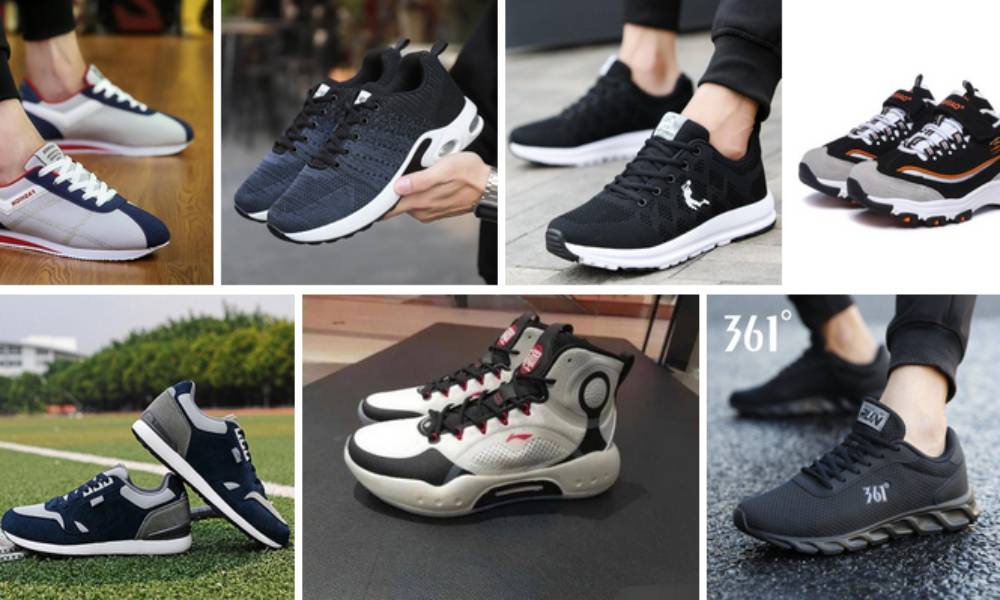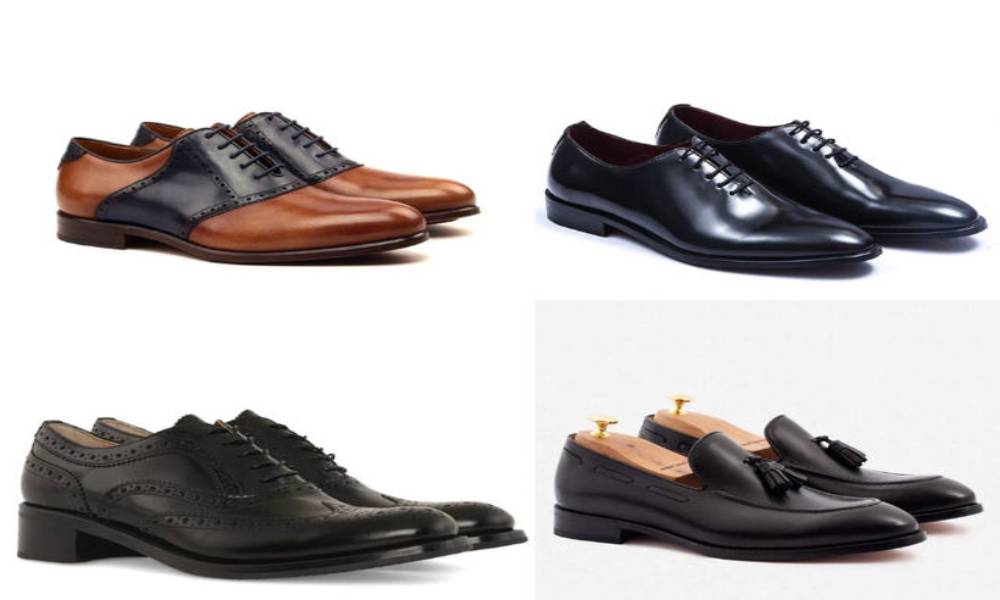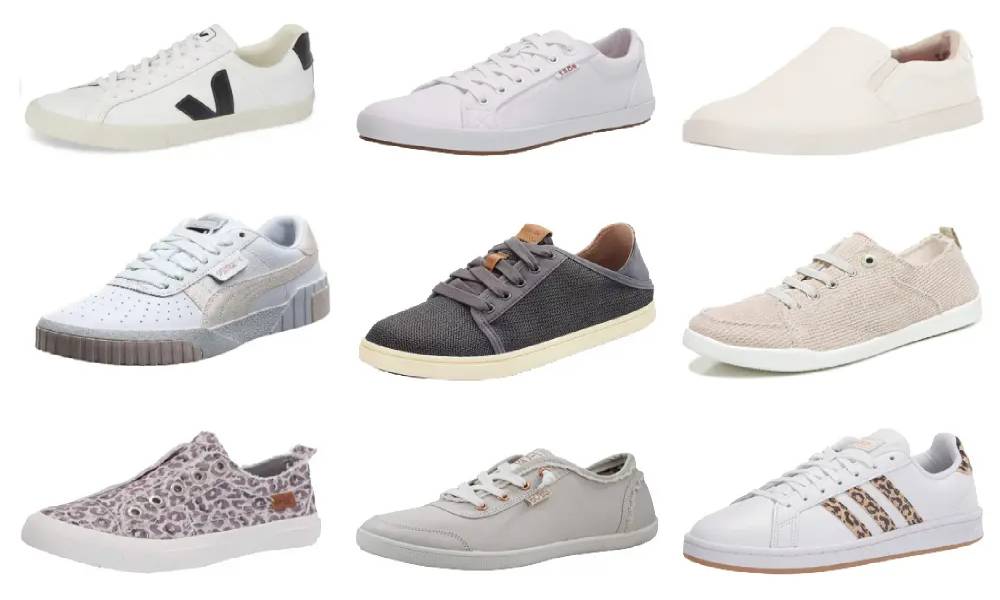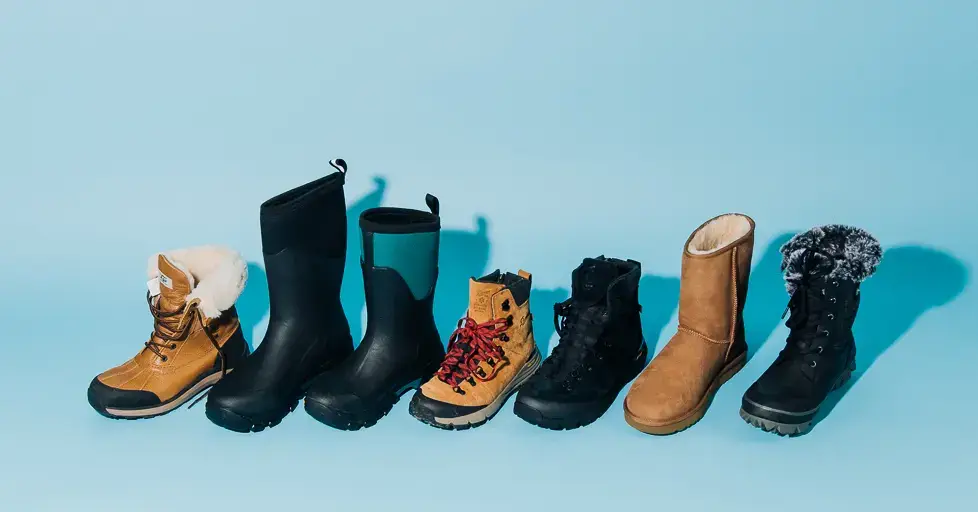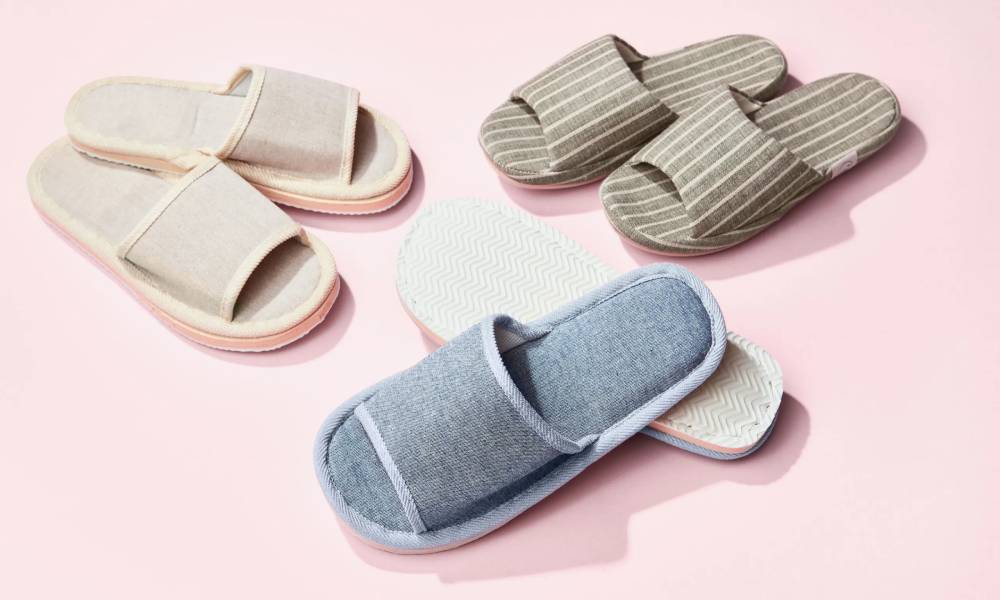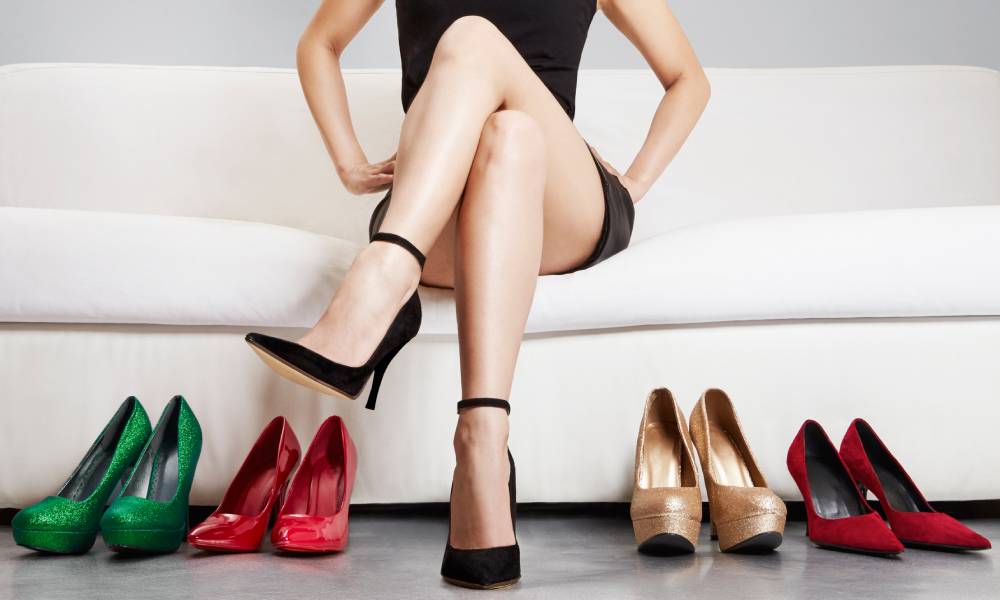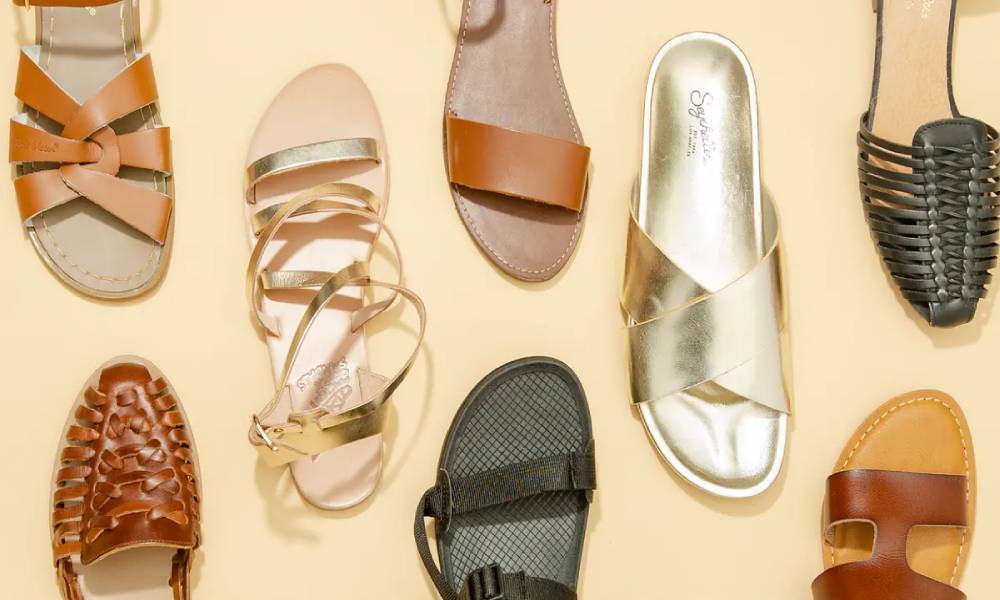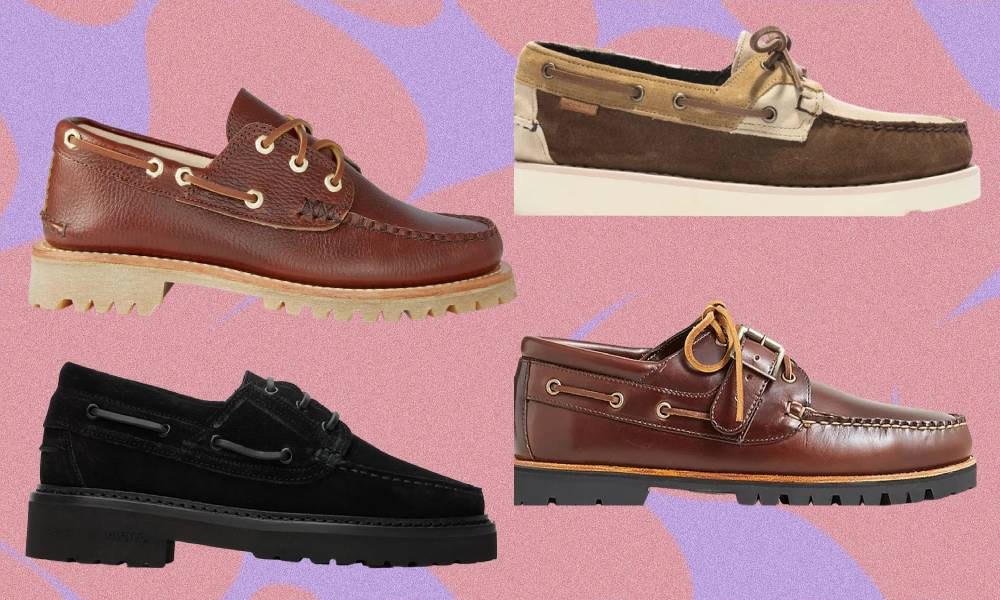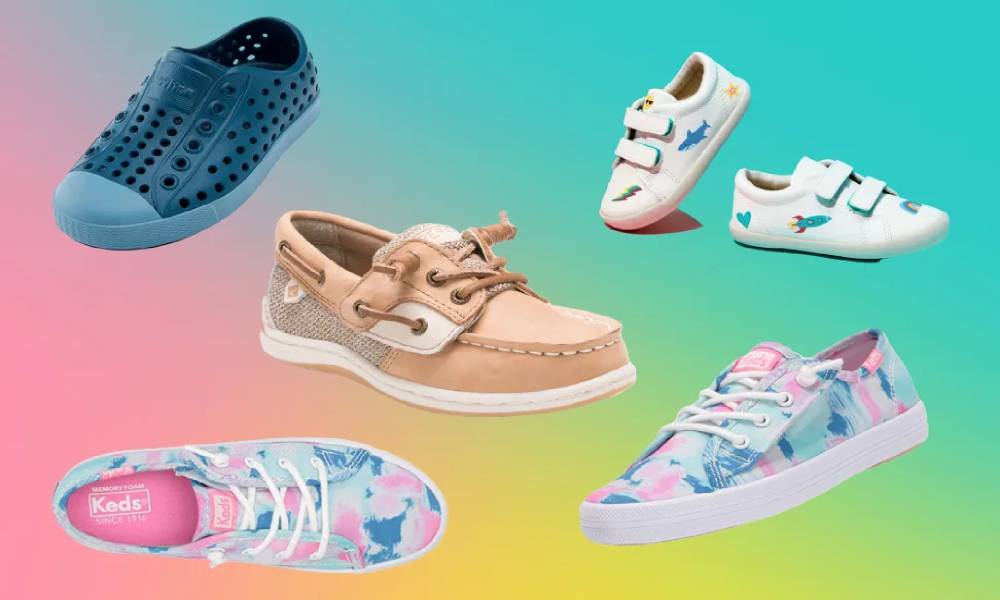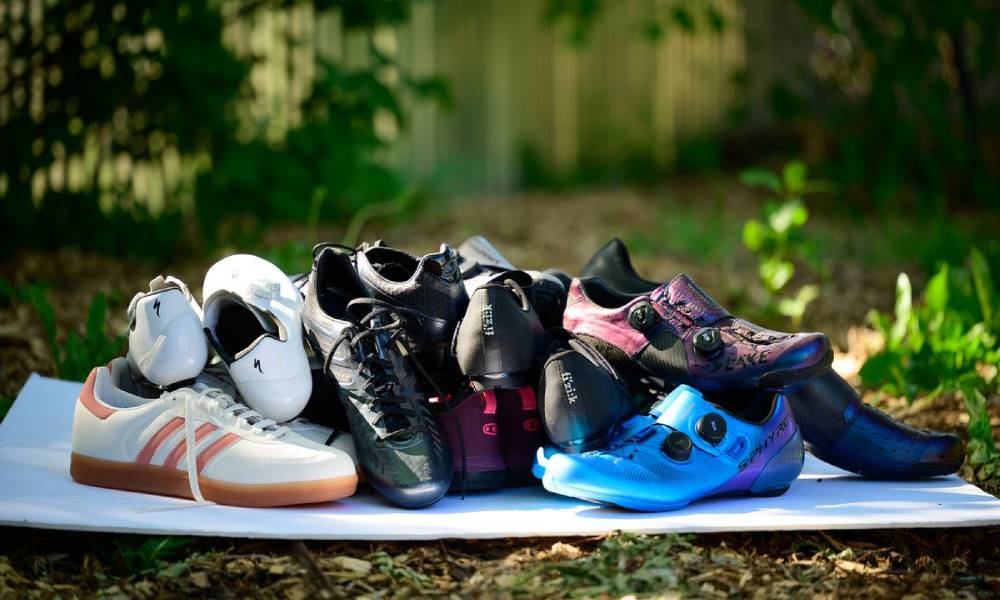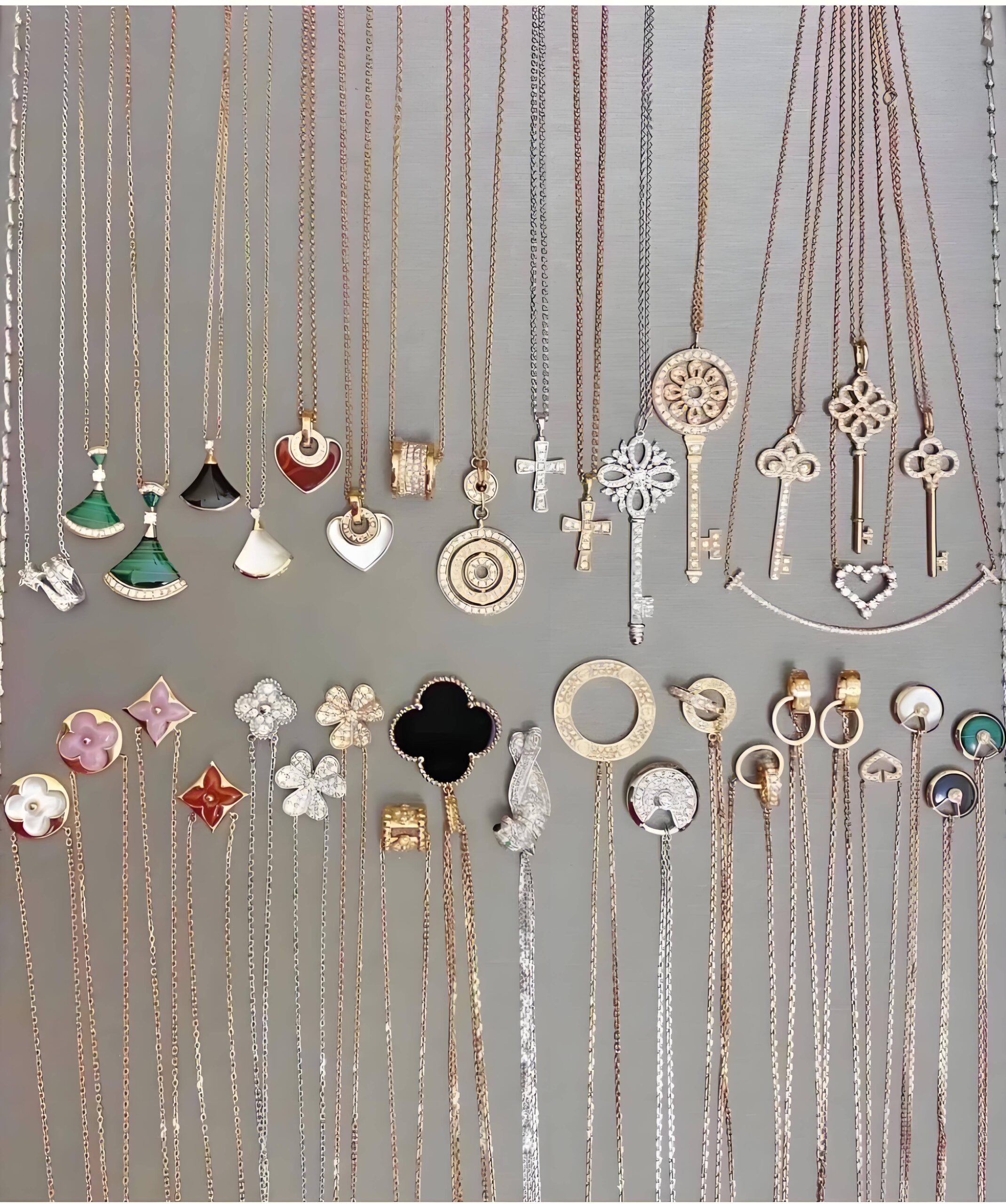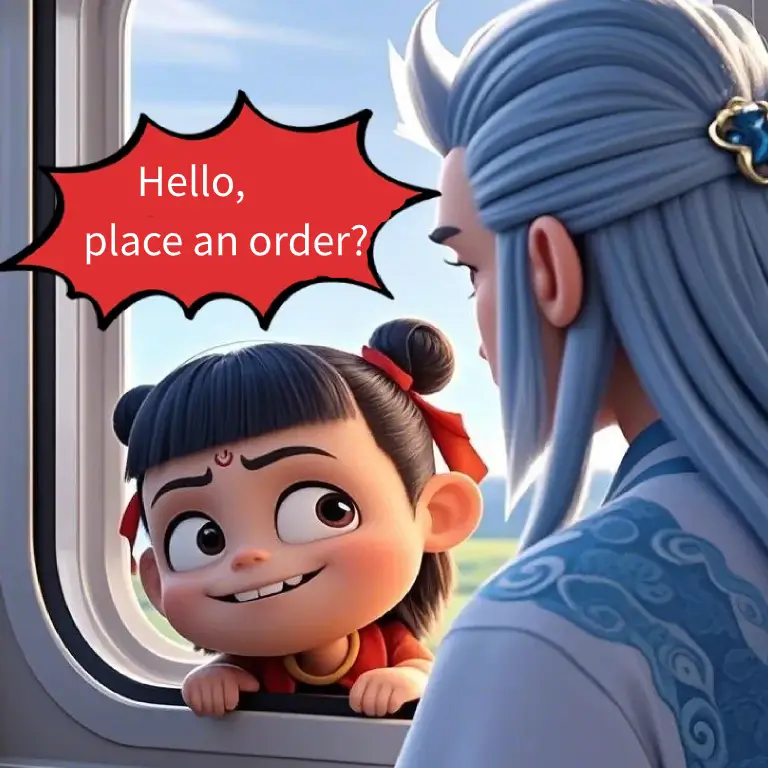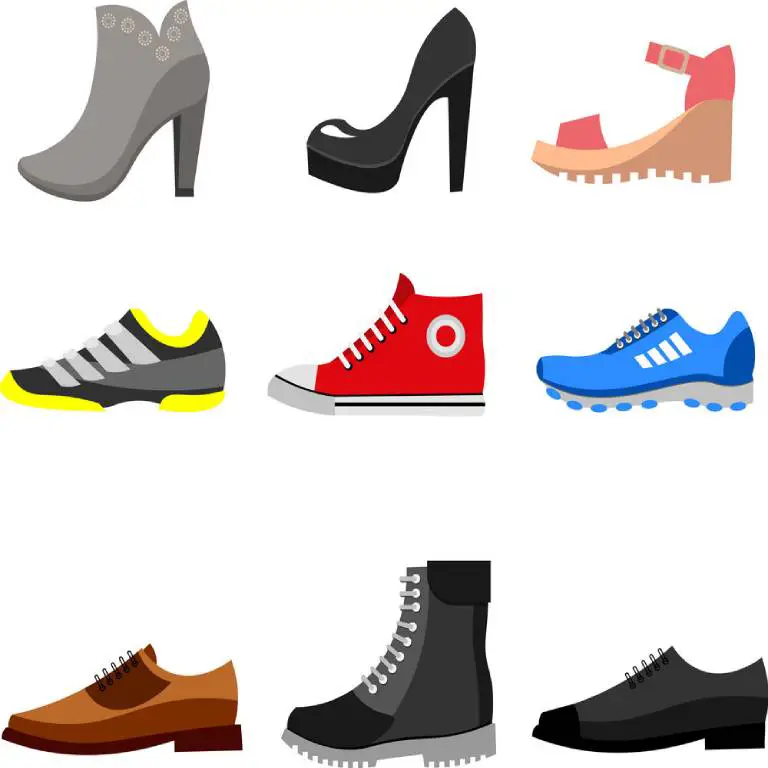
The type of shoes is incredibly diverse; they are not only functional accessories but also an indispensable part of our daily lives, offering both comfort and style. The choice of shoes is as extensive as the occasions they cater to. Let’s embark on a journey through the world of footwear, exploring ten of the most common types of shoes to meet our multifaceted needs in life.
1. Sports Shoes
Sports shoes are designed and manufactured based on the characteristics of people participating in sports. They emphasize functionality, including cushioning, shock absorption, anti-slip, high elasticity, and power transmission. Additionally, sports shoes incorporate a lot of lifestyle, casual, and fashion elements, making them suitable not only for specific sports but also for everyday wear. Sports shoes effectively meet consumers’ demands for functionality, style, comfort, and a healthy lifestyle.
Types: Types of sports shoes can be categorized into soccer shoes, basketball shoes, tennis shoes, badminton shoes, table tennis shoes, running shoes, hiking shoes, cycling shoes, skateboarding shoes, ice skates, and Tai Chi shoes, among others. Almost every sport has specialized sports shoes.
Features: Their functional characteristics primarily include ankle protection (basketball), shock absorption to relieve joint pressure during jumping activities, grip, anti-slip (water-crossing shoes), power transmission (table tennis, cycling), durability, lightweight, breathability, and more. Different structures and materials are used based on these different characteristics.
2. Leather Shoes
Leather shoes refer to footwear with a natural leather upper and a sole made of leather, rubber, plastic, PU foam, PVC, etc., processed through stitching, gluing, or injection molding techniques. Leather shoes are breathable, moisture-absorbing, and possess excellent hygiene properties, making them the most high-end type of footwear. The history of leather shoes dates back thousands of years, from primitive leather wraps to modern leather shoes.
Types: Types of leather shoes are generally categorized into formal shoes and casual shoes. Common materials used include various animal hides and synthetic leather. Based on the leather layers, they can be classified as top-grain leather and split-grain leather. Based on finishing techniques, there are suede, patent leather, waxed leather, suede, and more. Each type is suitable for different occasions, activities, and fashion preferences.
Features: Leather shoes are known for being breathable, moisture-absorbing, and hygienic, making them the most high-end type of footwear.
3. Casual Shoes
Casual shoes are a type of footwear characterized by a simple, comfortable design to meet people’s daily wear needs. The concept, meaning, and function of casual shoes are closely related to the ideals and lifestyles of modern living.
Types: Types of casual shoes include canvas shoes, athletic shoes, Chelsea boots, Martin boots, loafers, leather casual shoes, and slippers. These shoes are suitable for various casual occasions and seasons, offering comfortable and stylish choices.
Features: Casual shoes are known for their comfort, versatility, style, ease of wear and removal, suitability for daily activities, and relaxed casual wear. They also serve both practical and aesthetic functions, with practicality being a fundamental requirement and aesthetics and symbolism being important extended functions.
4. Boots
Boots are shoes with shafts that extend above the ankle bone. Boots, originally worn by northern nomadic tribes, are also known as riding boots and high boots. Generally, shoes with a shaft height of more than 4 inches are considered boots, and there is a wide variety of boot types.
Types: Types of boots come in many types, categorized by style, materials, and height. Styles include pointed-toe boots, round-toe boots, and small pointed-toe boots, among others. Common types of boots include hiking boots, duck boots, MoC-Toe boots, combat boots, packer boots, engineer boots, cowboy boots, Chukka boots, Jodhpur boots, and Balmoral boots.
Features: The functional characteristics of boots include providing foot protection and support, adapting to different climates and terrains, and durability in outdoor and work environments. They often have waterproof and insulating properties to ensure comfort in harsh weather conditions.
5. Slippers
Slippers are open-back shoes designed for indoor wear. They are typically characterized by a lack of a shoe upper in the back, allowing easy sliding on and off. Slippers are widely used in people’s daily lives.
Types: Types of slippers can be categorized by season as summer slippers and winter slippers. Based on shape, there are flip-flops, mule slippers, slide slippers, wedge slippers, high-heel slippers, massage slippers, perforated slippers, flat slippers, half-covered heel slippers, mesh slippers, peep-toe slippers, and more. Based on functionality, there are casual slippers, beach slippers, house slippers, travel slippers, bathroom slippers, anti-static slippers, cleaning slippers, health slippers, warm slippers, hotel slippers, disposable slippers, weight-loss slippers, and more.
Features: Slippers are characterized by indoor comfort, easy wear and removal, slip-resistant soles, and suitability for casual home wear, keeping feet comfortable while protecting floors from wear and tear. They are typically made from various materials to accommodate different seasons and personal preferences.
6. High Heels
High heels are an essential fashion item for women. They are characterized by a design that elevates the heel portion of the foot, and they do not use straps or other accessories. High heels typically cover the toes and heels, although there are styles that expose the toes or heels, similar to sandals or semi-slippers.
Types: Types of high heels can be classified by height as flat heels (30mm and below), medium heels (30mm-50mm), high heels (60mm-80mm), and super-high heels (80mm and above). They can also be categorized by heel shape, such as square heels, stiletto heels, wedge heels, cup heels, and dagger heels (thin high heels). High heels come in various styles, including sweet, European and American, office wear, and casual wear. With the addition of fashion elements, the styles of women’s shoes have become more diverse, and choosing what suits oneself is key.
Features: High heels enhance a woman’s figure, emphasizing curves and proportions, adding height, and providing an elegant and confident appearance. Wearing high heels can boost height, which is particularly useful for those who want to exude confidence and authority in the workplace or social settings.
7. Sandals
Sandals are a type of open-toed footwear that is airy and comfortable, similar to slippers. However, sandals have thicker soles and typically have a heel strap.
Types: Types of Sandals come in various styles, including Roman sandals, high-heel sandals, wedge sandals, leather sandals, beach sandals, T-strap sandals, gladiator sandals, strappy sandals, platform sandals, and more.
Features: Sandals are open footwear with a simple design, and they are suitable for both men and women. Women’s sandals offer a wide range of styles.
8. Boat Shoes
Boat shoes are unisex footwear available in flat and high-heel variations. They lack laces, and their design covers about 4/5 of the foot’s surface, resembling a boat, hence the name “boat shoes.” They are also known as moccasins due to their resemblance to gourds.
Types: Boat shoes come in elegant professional styles, those adorned with water crystals, and fresh countryside styles.
Features: Boat shoes are easy to put on and take off, combining a casual sports style with suitability for formal work settings.
9. Children’s Shoes
Children’s shoes are shoes designed for kids. Since children’s bodies are still developing, parents need to pay special attention to shoe size and material when choosing children’s shoes.
Types: Children’s shoes are primarily divided into pre-walking shoes, walking shoes, stable walking shoes, and functional shoes. They can also be categorized by style, such as princess shoes, caterpillar shoes, seashell shoes, fisherman shoes, and more.
Features: Children’s shoes are known for being lightweight, breathable, and suitable for healthy foot growth.
10. Specialized Functional Shoes
Functional shoes are specially designed footwear for sports or specific activities. They feature unique functions and technologies aimed at providing better support, cushioning, and protection.
Types: Functional shoes are typically categorized into various categories such as track spikes, basketball shoes, soccer cleats, golf shoes, hiking boots, dance shoes, safety shoes, and more.
Features: They incorporate advanced technologies and features to enhance athletic performance, reduce injury risk, improve comfort, and ensure durability.
These are some common types of shoes, and there are many more unique varieties available. When choosing shoes, it’s important to understand your needs, the characteristics of the shoes, try them on, consider your budget, and choose reputable brands.
Share This Story, Choose Your Platform!
We connect you with reliable factories, get the best quotes, deliver straight to your door.

